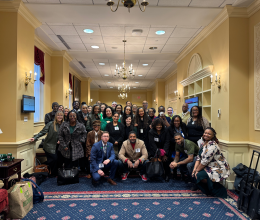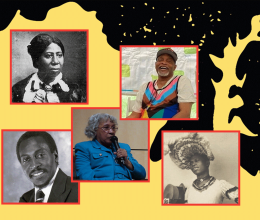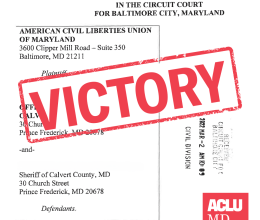Download the Court of Appeals decision
CONTACT: Meredith Curtis, ACLU of Maryland, 410-889-8555; media@aclu-md.org
Gerald Stansbury, Maryland NAACP, 410-533-7302, stansger@yahoo.com
Christine Till, Venable LLP, 202-344-4127, cmtill@venable.com
BALTIMORE, MD - The Maryland State Police (MSP) must turn over records pertaining to racial profiling complaints under the state's public information law, Maryland's highest court held today in a decision lauded by the American Civil Liberties Union (ACLU) of Maryland and the Maryland State Conference of NAACP Branches (NAACP). Since 2007, the groups have maintained that MSP is violating the state's public information law by improperly withholding documents that would show whether it has meaningfully investigated profiling complaints. Today's ruling rejects the Attorney General's blanket assertion that these documents can never be released, holding instead that redaction of personal information amply protects the privacy interests of those involved.
"The ruling handed down today by the state's highest court is a true victory for all Marylanders," said Gerald Stansbury, President of the Maryland State Conference of NAACP Branches. "It sets a strong precedent and gives us the ability to determine if and when reports and complaints of racial profiling are thoroughly investigated and handled appropriately."
The NAACP's purpose in pursuing the records all along has been to determine whether the MSP is truly investigating the complaints and taking seriously its responsibility to eliminate racial profiling by its troopers. However, the MSP has refused to turn over the documents, saying that all records of complaints and investigations are "personnel records" exempt from disclosure under the Maryland Public Information Act (MPIA), even when all identifying information is redacted. Today's court ruling flatly rejects that argument.
"As the police often say, ‘If you have nothing to hide, then what's the problem?'" asked Deborah Jeon, Legal Director of the ACLU of Maryland. "Complaints that people of color are targeted by the State Police for highway stops have haunted the department for more than two decades. Now, finally, the department must come clean about how it investigates and addresses racial profiling complaints."
In November 2010, Maryland's Court of Appeals heard argument regarding whether to uphold a Court of Special Appeals decision ordering MSP to produce investigatory records concerning how profiling complaints were resolved. That ruling upheld the Circuit Court's decision requiring the MSP to disclose the records without revealing the identities of either troopers or complainants. Today's ruling reaffirms the decisions of the lower courts.
Seth Rosenthal, an attorney who has led the Venable legal team since 2007, added: "From 2003 to 2008, motorists who lodged racial profiling complaints against Maryland state troopers went 0 for 100. Despite its proven history of racial profiling, the State Police has never sustained even one allegation. With the Court's decision today, Maryland citizens will now be able to monitor carefully whether the State Police is taking meaningful steps to eradicate the unlawful practice of stopping and searching motorists based on of the color of their skin."
In 2003, the NAACP and the MSP entered into a Consent Decree in racial profiling litigation initiated in the early 1990s. The MSP agreed to make the process for motorists to file racial profiling complaints more user-friendly and to thoroughly investigate all such complaints. During the four-year period following entry of the Decree, approximately 100 official complaints alleging racial profiling were filed by minority motorists. However, the MSP found that not a single one of these complaints had merit.. No MSP trooper has ever been found to have engaged in racial profiling, and no disciplinary action has ever been taken against a trooper for racial profiling.
Plaintiffs are represented by pro bono attorneys Seth Rosenthal, Brian Schwalb, and Joeann Walker from the law firm Venable, LLP, and Deborah Jeon from the ACLU of Maryland.
###







